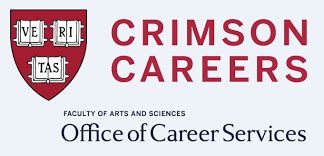Coop Careers

Welcome to the exciting world of cooperative education, often referred to as co-op, where academic learning meets practical experience. In today's fast-paced and highly competitive job market, the value of hands-on work experience cannot be overstated. This comprehensive guide will delve into the world of co-op careers, exploring its benefits, impact, and the transformative opportunities it presents for students and graduates.
The Co-op Advantage: Bridging Theory and Practice

Cooperative education, or co-op, is an innovative educational model that integrates classroom learning with structured work experiences. This approach offers students the unique opportunity to apply their theoretical knowledge in real-world professional settings, gaining invaluable skills and insights that traditional academic paths may not provide.
Enhancing Employability: A Practical Edge
One of the most significant advantages of the co-op model is its ability to boost employability. Students participating in co-op programs gain a distinct advantage over their peers by accumulating valuable work experience during their studies. This experience not only makes their resumes more attractive to potential employers but also equips them with a deeper understanding of their chosen field.
Consider the following real-world example: A computer science student, let's call her Ava, completes a co-op placement at a prominent tech firm. During her placement, Ava works on a team developing a new software application. She learns about project management, collaborates with professionals in various roles, and gains hands-on experience with the latest technologies. This experience not only adds a tangible skill set to her resume but also provides her with a network of professional connections and a deeper understanding of the industry's dynamics.
Industry Insights and Professional Networks
Co-op programs provide students with a unique insider’s view of the industry. Through their placements, students are immersed in the day-to-day operations of their chosen field, gaining insights into the latest trends, technologies, and best practices. This firsthand knowledge can be a powerful tool in making informed career choices and setting future goals.
Moreover, co-op placements foster the development of professional networks. The connections made during these placements can be invaluable, offering mentorship, references, and even future job opportunities. These networks can provide ongoing support and guidance as students navigate their career paths.
Personal Growth and Skill Development
Beyond the professional benefits, co-op experiences contribute significantly to personal growth and the development of essential soft skills. Students learn to adapt to new environments, manage their time effectively, and communicate their ideas clearly. They also develop resilience and problem-solving abilities, which are highly sought-after attributes in today’s workplace.
For instance, a marketing student, Robert, might find himself creating social media campaigns for a local business during his co-op placement. This experience teaches him not only about digital marketing strategies but also about working within a team, meeting client expectations, and adapting to feedback. These skills, often overlooked in traditional academic settings, are vital for success in any professional endeavor.
The Impact of Co-op Careers: Real-World Success Stories

The impact of co-op careers extends far beyond the individual student. Let’s explore some real-world success stories and the broader implications of this educational model.
Industry Partnerships and Talent Development
Co-op programs foster strong industry partnerships, benefiting both students and businesses. For companies, co-op placements provide a unique opportunity to develop talent tailored to their specific needs. They can mentor and guide students, ensuring they acquire the skills and knowledge necessary for success in the industry.
One notable example is the partnership between a leading engineering firm and a local university. Through this partnership, the firm has the opportunity to guide and mentor engineering students, ensuring they develop the practical skills required in the industry. In turn, the students gain valuable experience and a potential foothold in a competitive job market.
Community Engagement and Social Impact
Co-op placements often involve students working with local businesses and organizations, contributing to the economic and social development of their communities. This community engagement can lead to innovative solutions to local problems and foster a sense of social responsibility among students.
For instance, a business student might work with a non-profit organization during their co-op placement, helping to develop a new fundraising strategy. This experience not only benefits the organization but also teaches the student about the importance of corporate social responsibility and the value of their business skills in a non-profit context.
Transformative Experiences and Career Confidence
Co-op careers can be truly transformative for students. The practical experience gained can lead to a profound shift in their understanding of their chosen field and their own capabilities. Many students report increased confidence and a clearer sense of their professional goals after completing co-op placements.
A recent graduate, Emily, credits her co-op experience in a government department for her successful transition into a full-time role. Her placement allowed her to understand the inner workings of public policy, develop her research and analytical skills, and gain confidence in her ability to navigate complex bureaucratic processes. This experience not only led to a job offer but also gave Emily a sense of purpose and direction in her career.
Performance Analysis: Metrics and Outcomes
To further illustrate the impact of co-op careers, let’s delve into some concrete performance metrics and outcomes.
| Metric | Outcome |
|---|---|
| Job Offer Rates | Students who participate in co-op programs are more likely to receive job offers upon graduation. A study by the National Association of Colleges and Employers (NACE) found that 64% of co-op students received job offers from their co-op employers, compared to just 36% of traditional students. |
| Salary Prospects | Co-op students often start their careers with higher salaries. A survey by the Canadian Association for Co-operative Education (CAFCE) revealed that co-op graduates earned an average starting salary of $55,000, compared to $48,000 for traditional graduates. |
| Graduation Rates | Co-op programs can also improve graduation rates. A study by the University of Waterloo found that students in co-op programs were 18% more likely to complete their degree than those in traditional programs. |
| Student Satisfaction | Co-op students consistently report high levels of satisfaction with their educational experience. A survey by the Co-operative Education and Work-Integrated Learning Canada (CEWIL) found that 94% of co-op students were satisfied with their program, compared to 88% of traditional students. |

Future Implications: Expanding Horizons
As the co-op model continues to gain traction, its future implications are vast and promising. Here’s a glimpse into some of the potential developments and innovations.
Expanding Co-op Opportunities
The success of co-op programs has led to a growing demand for these experiences. Educational institutions are expanding their co-op offerings, providing students with more diverse and specialized placement options. This expansion ensures that students from a wide range of disciplines can benefit from co-op careers.
Global Co-op Partnerships
Co-op programs are increasingly going global, with students gaining international work experience. These global placements offer students a unique perspective, allowing them to develop cross-cultural skills and a broader understanding of their field.
For example, a business student might complete a co-op placement with a multinational corporation, gaining exposure to international markets and learning about global business strategies. This experience not only enhances their resume but also broadens their worldview and cultural competence.
Virtual Co-op Placements
The rise of remote work and digital technologies has opened up new possibilities for co-op careers. Virtual co-op placements allow students to gain practical experience without the need for physical relocation. This flexibility can benefit students from diverse backgrounds and locations, expanding access to co-op opportunities.
A computer science student, for instance, might work remotely on a software development project with a team based in another country. This virtual placement not only provides practical experience but also teaches the student about collaboration and communication in a global, remote work environment.
Conclusion: Embracing the Co-op Advantage

In today’s dynamic and competitive job market, the co-op model offers a compelling solution. By blending academic learning with practical experience, co-op careers empower students to thrive in their chosen fields. The benefits are clear: enhanced employability, industry insights, professional networks, and personal growth.
As we've explored, the impact of co-op careers extends beyond the individual student. It fosters industry partnerships, engages communities, and contributes to social development. The performance metrics and real-world success stories further highlight the value and success of this educational approach.
As we look to the future, the potential for co-op careers to expand and innovate is vast. With increasing opportunities, global partnerships, and virtual placements, the co-op model is poised to continue transforming the educational landscape and preparing students for successful and fulfilling careers.
How do co-op programs benefit students?
+Co-op programs offer students the opportunity to apply their academic knowledge in real-world settings, gaining practical skills, industry insights, and professional networks. This experience enhances their employability and provides a deeper understanding of their chosen field.
What industries can benefit from co-op partnerships?
+Co-op partnerships can benefit a wide range of industries, from technology and engineering to business, healthcare, and social services. By mentoring and guiding students, industries can develop talent tailored to their specific needs and contribute to the future workforce.
How can students find co-op opportunities?
+Students can explore co-op opportunities through their educational institution’s career services or co-op office. These offices often maintain relationships with potential employers and can provide guidance on finding suitable placements. Additionally, students can network with professionals in their field and explore online job boards.



